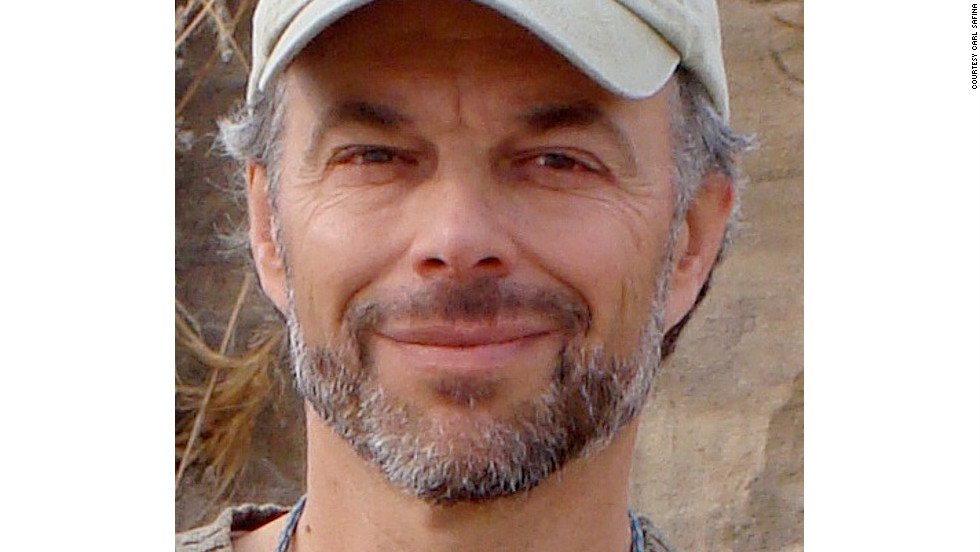Can a killer whale be a slave?
 |
| Robbyne Kaamil |
- Carl Safina: Lolita, a captured killer whale, is living in Florida at the Miami Seaquarium in a confined space
- Safina: Lolita should be released into her home waters of Washington State so she can be with her family
Carl Safina holds the Endowed Chair for Nature and Humanity at Stony Brook University and is author of the upcoming book, "Beyond Words: How Animals Think and Feel." The opinions expressed in this commentary are solely those of the author.
(CNN)"Lolita's
story reminded me of my own," says African-American actress and singer
Robbyne Kaamil. "My own relatives, my family ancestors, were captured
and forced into slavery."
Captured
in waters off Washington State in 1970, Lolita is an orca -- a killer
whale. Kaamil, who perceives clear parallels between Lolita's life of
captivity-for-profit and the human slave trade, was inspired to record "Let The Girl Go: Free Lolita," a bold music video about Lolita, and a courageous interview on the parallels of captivity between human slaves and performing orcas.
Lolita
is still living in Florida at the Miami Seaquarium. She's been the
focus of a concerted campaign to win her release. In January, Kaamil
participated in a march in Miami that drew an impressive crowd estimated by the Miami Herald to be around 1,000 people.
Can
a killer whale be a slave? Literally? "It's important to understand how
horrendous it is to steal a baby orca from her family, force her to
perform, and hold her in the equivalent of a bath tank until she dies.
It's a crime," Kaamil said.
Lolita has spent 44 years in a teacup. She is 20 feet long, living in a tank reportedly
to be about 20 feet deep, 35 feet wide and 80 feet long. Free-living
orcas usually travel 25 to 75 miles per day. Compared to say, 40 miles,
80 feet is about 1/2600th the size of an orca's normal daily life.

Carl Safina
Like
a second lump of sugar, a whale named Hugo who had been captured from
the same free-living whale community two years earlier, shared Lolita's
teacup for 10 years. Hugo died in 1980 after repeatedly ramming his head
into the wall of the pool. Did he commit suicide? Free-living orcas
never do anything self-destructive. They have never even been seen
fighting.
Consider Lolita's isolation.
At age 4, she was taken from her mother. Free-living orcas live their
entire lives traveling with their mothers, siblings and children. Unlike
any other known creature, unlike elephants and humans, orcas like
Lolita never leave their birth family. Free-living orcas frequently live
into their 50s or beyond (they can live up to a century). They often
cooperate and help one another, and may perform midwife duties.
Forty-year veteran orca expert Ken Balcomb has told me
that tooth marks on a recent healthy newborn suggest that another
whale, likely its grandmother, assisted her daughter during a difficult
birth by pulling the infant from her body.
Thousands
of miles away, Lolita's family has been without her. During these
decades, the family desperately needed her. "The captures of young
whales in the 1960s and '70s really caused a long-term problem," Balcomb
told me. The so-called "resident" orca families travel the U.S. West
Coast off Washington, Oregon and California hunting fish. Before the
captures they totaled about 120 whales. The captures took them down to
about 70. They managed to rebuild to 99 whales by the 1990s.
But
when the whales removed as babies would have been the next maturing
generation, rebuilding hit a wall: too few females. Forty years later,
the population—around 80 whales—is losing one or two members a year. The
whole U.S. resident population now has just two-dozen females of
reproductive age. In some families, the only females are past
reproductive age. Those families are doomed.
Lolita,
who has never given birth, is now menopausal, her gifts to the future
forever withheld by her denatured existence. By continuing to lure
paying customers, Lolita continues to make money for her owners. Palace
Entertainment, owner of the Miami Seaquarium, claims Lolita can no
longer survive in the wild. But that's not the proposal.
The
proposal is to move her into a vastly larger open-water net-pen in her
home waters of Washington State. There, she can be in vocal contact with
her family. Depending on how that goes and whether after all this time
there remains recognition, the possibility of full return to her family
could be considered.
Lolita's
fish-hunting skills are by now somewhere between rusty and nonexistent,
but free-living orcas routinely share food. Bottom line: What's proposed
for her is better than the situation she is in. Even death might seem
preferable—as Lolita's companion Hugo seemed to think.
"Most
of us have a clear understanding about the cruelty of slavery. It is
imperative to recognize the inhumanity of forcing any living being into
captivity." Kaamil said.
cnn.